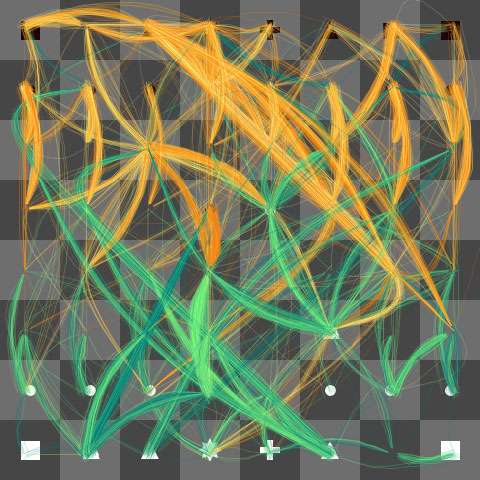Various folks have been asking me about my Friendster publications and i thought i’d do a simple round-up for anyone who is trying to learn about Friendster. Below are directly relevant papers and their abstracts (or a brief excerpt); full citations can be found on my papers page. Please feel free to email me if you have any questions.

“None of this is Real: Networked Participation in Friendster” by danah boyd – currently in review (email for a copy), ethnographic analysis of Friendster, Fakesters, and digital social play
Excerpt from introduction: Using ethnographic and observational data, this paper analyzes the emergence of Friendster, looking at the structural aspects that affected participation in early adopter populations. How did Friendster become a topic of conversation amongst disparate communities? What form does participation take and how does it evolve as people join? How do people negotiate awkward social situations and collapsed social contexts? What is the role of play in the development of norms? How do people recalibrate social structure? By incorporating social networks in a community site, Friendster introduces a mechanism for juxtaposing global and proximate social contexts. It is this juxtaposition that is at the root of many new forms of social software, from social bookmarking services like del.icio.us to photo sharing services like Flickr. Capturing proximate social contexts and pre-existing social networks are core to the development of these new technologies. Friendster is not an answer to the network question, but an experiment in capture and exposure of proximate relations in a global Internet environment. While Friendster is not nearly now as popular as in its heyday, the lessons learned through people’s exploration of it are increasingly critical to the development of new social technologies. As a case study, this paper seeks to reveal those lessons in a manner useful to future development.
Profiles as Conversation: Networked Identity Performance on Friendster by danah boyd and Jeffrey Heer – 2006 HICSS paper on how Friendster Profiles become sites of conversation
Abstract: Profiles have become a common mechanism for presenting one’s identity online. With the popularity of online social networking services such as Friendster.com, Profiles have been extended to include explicitly social information such as articulated “Friend” relationships and Testimonials. With such Profiles, users do not just depict themselves, but help shape the representation of others on the system. In this paper, we will discuss how the performance of social identity and relationships shifted the Profile from being a static representation of self to a communicative body in conversation with the other represented bodies. We draw on data gathered through ethnography and reaffirmed through data collection and visualization to analyze the communicative aspects of Profiles within the Friendster service. We focus on the role of Profiles in context creation and interpretation, negotiating unknown audiences, and initiating conversations. Additionally, we explore the shift from conversation to static representation, as active Profiles fossilize into recorded traces.
Vizster: Visualizing Online Social Networks by Jeffrey Heer and danah boyd – a 2005 InfoVis paper about visualizing Friendster data (including arguments about using visualization in ethnography and recognizing the value of play in visualization)
Recent years have witnessed the dramatic popularity of online social networking services, in which millions of members publicly articulate mutual “friendship” relations. Guided by ethnographic research of these online communities, we have designed and implemented a visualization system for playful end-user exploration and navigation of large-scale online social networks. Our design builds upon familiar node-link network layouts to contribute techniques for exploring connectivity in large graph structures, supporting visual search and analysis, and automatically identifying and visualizing community structures. Both public installation and controlled studies of the system provide evidence of the system’s usability, capacity for facilidiscovery, and potential for fun and engaged social activity.
Public Displays of Connection by Judith Donath and danah boyd – a 2004 BT Journal article on how people publicly perform their social relations
Abstract: Participants in social network sites create self-descriptive profiles that include their links to other members, creating a visible network of connections – the ostensible purpose of these sites is to use this network to make friends, dates, and business connections. In this paper we explore the social implications of the public display of one’s social network. Why do people display their social connections in everyday life, and why do they do so in these networking sites? What do people learn about another’s identity through the signal of network display? How does this display facilitate connections, and how does it change the costs and benefits of making and brokering such connections compared to traditional means? The paper includes several design recommendations for future networking sites.
Friendster and Publicly Articulated Social Networks by danah boyd – a 2004 short CHI paper staking out what Friendster is.
Abstract: This paper presents ethnographic fieldwork on Friendster, an online dating site utilizing social networks to encourage friend-of-friend connections. I discuss how Friendster applies social theory, how users react to the site, and the tensions that emerge between creator and users when the latter fails to conform to the expectations of the former. By offering this ethnographic piece as an example, I suggest how the HCI community should consider the co-evolution of the social community and the underlying technology.

 Yesterday,
Yesterday,